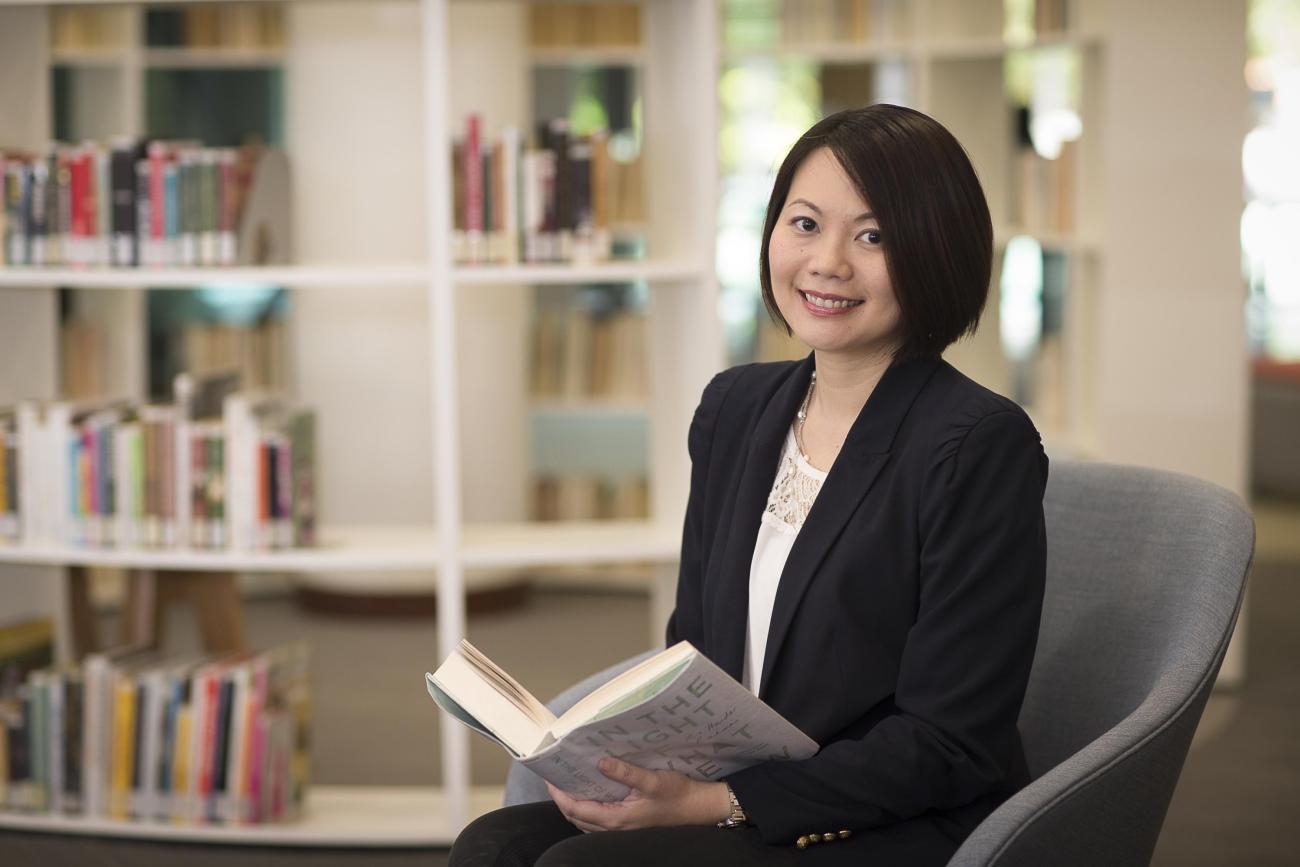
Dr. Angela Leung is Associate Professor of Psychology at the Singapore Management University. Her publications have appeared in top-tier journals including American Psychologist, Journal of Personality and Social Psychology, Psychological Science, Personality and Social Psychology Bulletin, Journal of Experimental Social Psychology, and Journal of Environmental Psychology.
Sharing what her research is about, Prof Leung said, “My research is motivated by the goal of transforming complex, contradictory, and challenging issues into opportunities so that people and society can thrive. As a psychologist, I deeply embrace the belief that our mindset is a powerful lens through which to see the world. The problem is not the problem, but the way we see the problem. This belief can have profound impacts on our psychological and physical wellness. My programme of research seeks to enrich understanding of how our mindset or mental frame makes sense of personal and societal challenges, and the downstream differential consequences of being impaired versus enriched by the accompanying conflicts and tensions. I truly believe in the saying “with challenges comes opportunities” and I exemplify this belief in my life and research pursuits.”
Elaborating on how she first began and how her research has developed, Prof Leung said, “I started working on this exciting topic by studying how people’s intercultural contact or multicultural exposure can offer opportunities for inspiring creativity amidst the challenge of culture shock. More recently, I seek to bring this research to the next level by examining how paradox management can benefit career-motherhood enrichment, social innovation, mixed emotion regulation, perspective-taking, and tension coping during the COVID-19 pandemic. Beyond examining these conflicting and challenging experiences of individuals, a societal challenge addressed in my research is climate change and sustainability. I am keen to enrich the climate change literature with a cultural psychological perspective. For example, my research showed how espousing a cosmopolitan or global orientation can promote environmental consciousness. With my collaborator, we have just embarked on a new line of research to examine how to promote a higher public acceptance towards alternative proteins, such as cultured meat and plant-based proteins, as these novel foods present an invaluable opportunity to achieve more sustainable and potentially healthier food consumption.”
A recent piece of her research is “Research on climate change in social psychology publications: A systematic review” published in the Asian Journal of Social Psychology in 2021. This paper systematically reviewed 130 studies on climate change or global warming published in social psychological journals. Although social psychologists have contributed to climate change and sustainability research, the review identified some important gaps in this literature.
These gaps include weak presence of authors and data from non-Western, developing, and non-democratic societies, lack of cross-cultural comparisons, reliance on young samples recruited from online data collection platforms, and over-emphasis on individual processes (as opposed to societal and institutional factors).
On addressing these gaps, Prof Leung said, “Given the underrepresentation of Asian and more diverse populations, one important gap to fill is to promote more cross-cultural understanding of how people react to and interpret climate change. According to a report published in 2020, the Asia Pacific region alone accounts for more than half of the world’s total greenhouse gas emissions. Compared to the rest of the world, Asia Pacific has the highest growth rate of carbon emissions between 2008 and 2018.”
“It is a pressing agenda for climate change research to broaden the data pool. This is a global crisis that requires collaborative initiatives from different countries in the world, such as the Paris Agreement. In addition, we need to understand not only the individuals’ psychological processes, but also the influence of the sociocultural and institutional contexts, to manage this global societal challenge”, she added.
Prof Leung is the director of her research lab, MC3 Lab (Motivated Cognition, Culture, and Creativity Lab). She mentors her PhD, masters, and undergraduate thesis students to carry out empirical research of their interest. Members of her research team have prolific publication records and have won numerous research awards and external grants.
She is the Lee Kong Chian Fellow in 2020-21, 2019-20 and 2017-18 and the Lee Foundation Fellow for Research Excellence in 2009-10. She has received the Seisoh Sukemune/Bruce Bain Encouragement of Early Career Research Award (International Council of Psychologists, 2013), the Award for Research Excellence (Singapore Management University, 2009), and the first honourable mention for the Otto Klineberg Intercultural and International Relations Prize (Society for the Psychological Study of Social Issues, 2009).
Prof Leung has been awarded several external grants as co-PI, including the MOE Tier 2 Grant (2021), Ministry of Sustainability and the Environment’s SG Eco Fund (2021), MOE Tertiary Education Research Fund (2021), and the Chinese Arts and Culture Research Grant Scheme under the Singapore Chinese Cultural Centre (2020).
Prof Leung has edited two books on the psychological science of culture: Cultural processes: A social psychological perspective published by the Cambridge University Press in 2010 and Handbook of culture and creativity: Basic processes and applied innovations published by the Oxford University Press in 2018.
She is currently Associate Editor of the Journal of Cross-Cultural Psychology and Co-Editor-in-Chief of the Asian Journal of Social Psychology. Since last year, Prof Leung and two other editors of the Asian Journal of Social Psychology started a brand-new initiative called AJSP Editors Podcast. Available for subscription on Castos, Google, and Spotify, this podcast series aims to introduce publications in the journal and offer insights regarding the conduct and publication of social psychological research to the global community freely.
Prof Leung has also contributed actively to the research community by co-organising conferences and workshops, and serving in the programme boards, programme committees, steering committees, and editorial boards of many top-tier and leading conferences and journals. For example, she has delivered a keynote speech about the cultural psychology of sustainable living to the Chinese Psychology Conference in 2021 and invited talks at the Academy of Management Meeting in 2018 and the Society for Personality and Social Psychology Conference in 2019.
Originally published at https://news.smu.edu.sg/news/2022/03/07/challenges-or-opportunities-understanding-how-human-mindset-makes-sense-personal
Back to Research@SMU May 2022 Issue
See More News
Want to see more of SMU Research?
Sign up for Research@SMU e-newslettter to know more about our research and research-related events!
If you would like to remove yourself from all our mailing list, please visit https://eservices.smu.edu.sg/internet/DNC/Default.aspx

